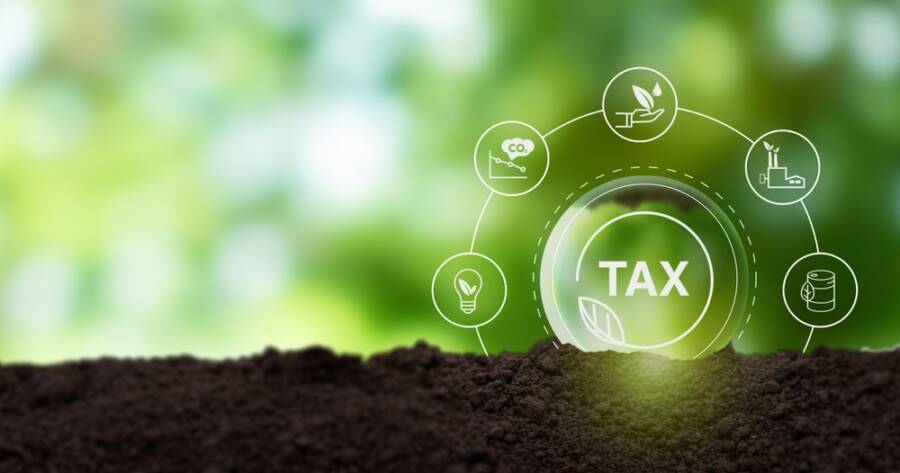As climate change continues to be one of the most pressing global issues, governments around the world are seeking innovative solutions to reduce carbon emissions and promote environmental sustainability. One such measure is the carbon tax, a policy that charges individuals, businesses, and industries for emitting carbon dioxide (CO2) and other greenhouse gases. However, to make this approach more equitable, many governments have introduced the carbon tax rebate—a financial incentive that aims to offset the cost of the carbon tax for consumers, particularly those with lower incomes.
What is a Carbon Tax?
A carbon tax is a fee imposed on the carbon content of fossil fuels. The goal is to make fossil fuel consumption more expensive, thereby encouraging businesses, industries, and individuals to reduce their carbon emissions by using cleaner, more sustainable alternatives. The higher the carbon content of a product, the higher the tax. The idea is simple: by attaching a price to carbon emissions, the market will naturally shift toward greener technologies and practices.
Governments can use the revenue generated from carbon taxes to fund environmental initiatives or to lower other taxes. While the goal of a carbon tax is to reduce emissions, it can also place a financial burden on consumers, especially those in lower-income brackets, who may rely more heavily on energy-intensive services and products.
What is a Carbon Tax Rebate?
To balance the economic impact of a carbon tax, many governments have implemented a carbon tax rebate or dividend system. A carbon tax rebate is a payment or credit given to individuals, particularly low- and middle-income households, to offset the increased costs associated with the carbon tax. Essentially, the rebate aims to return a portion of the carbon tax revenue to consumers to make the tax system more equitable.
The carbon tax rebate works by redistributing the revenue collected from the carbon tax to the population in the form of a direct payment or tax refund. In many cases, the amount of the rebate is higher for individuals in lower-income households, who are most likely to be impacted by rising costs due to the tax. This system ensures that those who contribute the least to carbon emissions are not disproportionately affected by the price increase in carbon-intensive goods and services.
Benefits of a Carbon Tax Rebate
- Equity and Fairness: The carbon tax rebate is designed to protect lower-income households from the financial strain that a carbon tax could cause. Since wealthier individuals tend to use more energy-intensive services, the rebate ensures that the burden of the tax is more evenly distributed. This makes the policy more equitable, allowing those with fewer resources to participate in the transition to a greener economy.
- Encouraging Behavioral Change: By raising the cost of carbon-intensive goods and services, a carbon tax encourages individuals and businesses to adopt cleaner alternatives, such as electric vehicles, renewable energy sources, and energy-efficient appliances. The rebate helps soften the economic impact of these behavioral shifts, making it easier for consumers to make sustainable choices.
- Revenue Generation for Environmental Programs: The revenue generated from a carbon tax can be used to fund renewable energy projects, environmental conservation efforts, or infrastructure improvements that support green technologies. This creates a cycle where the tax funds initiatives that help further reduce carbon emissions, promoting long-term sustainability.
- Promoting a Low-Carbon Economy: A carbon tax rebate supports the broader goal of transitioning to a low-carbon economy. By incentivizing businesses and consumers to reduce their carbon footprint, the policy contributes to meeting national and international climate targets. The rebate ensures that the transition is as smooth and fair as possible.
Challenges and Considerations
While the carbon tax rebate provides significant benefits, there are some challenges to consider. For instance, the implementation and management of a rebate system can be complex, requiring governments to track emissions, assess income levels, and distribute payments effectively. Additionally, some critics argue that carbon tax rebates might not be enough to offset the overall price increase for lower-income households, especially if the cost of living rises significantly due to the carbon tax.
The Importance of the Carbon Tax Rebate in Achieving a Fair and Sustainable Future
The carbon tax rebate is an essential tool for addressing climate change in a fair and sustainable way. By redistributing the revenue generated from the carbon tax back to consumers, particularly those with lower incomes, it helps mitigate the financial impact of the tax. At the same time, it encourages environmentally responsible behavior and contributes to the transition to a low-carbon economy. While challenges remain in the implementation of such programs, the carbon tax rebate represents a vital step in creating a more equitable and sustainable future for all.

